In today’s digitally connected B2B and B2C ecommerce landscape, customers expect rich, accurate, and consistent product information—anytime, anywhere. The challenge? Managing vast product data across multiple sales and marketing channels. That’s where Product Information Management (PIM) software steps in as a game-changer.
Whether you're a manufacturer, distributor, or retailer, the right PIM system empowers you to streamline product data, enhance collaboration across teams, and deliver a consistent customer experience at scale.
In this article, we’ll explore what PIM is, its core benefits, how to choose the best PIM software, and why B2Sell is leading the way with seamless PIM integrations for manufacturers and enterprises alike.
What is PIM Software?
- PIM Software stands for Product Information Management software—a centralized platform that helps organizations collect, manage, enrich, and distribute product information across internal systems and external channels.
- Think of it as a single source of truth for all product-related data: names, descriptions, technical specs, SKUs, pricing, digital assets, compliance documents, translations, and more.
Key Functions of PIM Software:
- Centralize product data from ERPs, CRMs, spreadsheets, and suppliers
- Clean, enrich, and validate product content
- Publish and syndicate data across ecommerce platforms, marketplaces, print, and POS
- Collaborate across marketing, sales, and supply chain teams
- Track versions, changes, and user roles with ease
In essence, PIM turns messy spreadsheets and disconnected systems into a streamlined content engine.
Why Product Information Management Matters
Accurate product data is no longer a nice-to-have – it's expected by customers, partners, and algorithms. Inconsistent or missing product information leads to:
- Poor customer experience
- Higher return rates
- Lost sales due to incomplete listings
- Difficulty scaling to new channels
In addition, digital buyers are more informed than ever. They rely on detailed product content, images, comparisons, and specifications before making a purchase. PIM ensures you deliver rich, compelling content that influences buying decisions across all touchpoints.
PIM helps you:
- Eliminate manual data entry errors
- Provide buyers with consistent, reliable product information
- Save time and reduce team workload
- Meet compliance and channel-specific requirements
Key Features of a Robust PIM System
The best PIM systems share the following core capabilities:
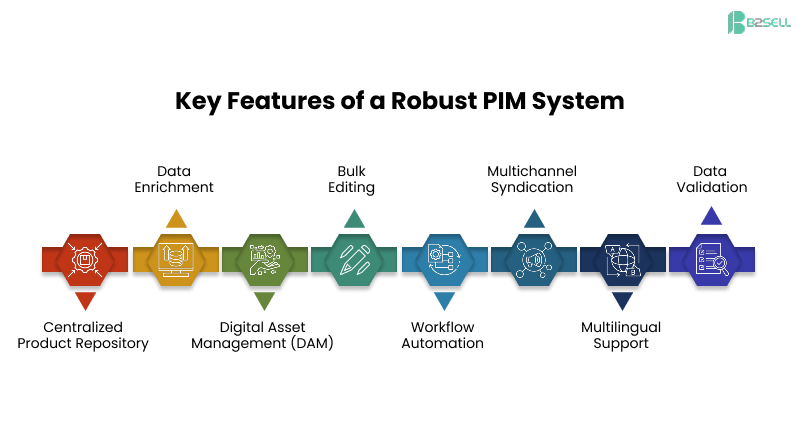
1. Centralized Product Repository
All product data is stored in one place for easy access and version control. This centralized hub allows various departments to collaborate without duplicating effort or overwriting information.
2. Data Enrichment
Add marketing-friendly content, categorize products, and apply branding guidelines. Enrichment also includes creating SEO-optimized titles, bullet points, and structured attributes for better search performance.
3. Digital Asset Management (DAM)
Manage images, PDFs, videos, and technical specs linked to each product. DAM features ensure all multimedia assets are associated with the correct version of a product and meet platform-specific requirements.
4. Bulk Editing
Update hundreds of SKUs in seconds without repetitive manual entry. Bulk actions are vital for pricing updates, seasonal changes, or introducing new product lines.
5. Workflow Automation
Collaborative tools for approvals, versioning, and publishing processes. This includes notifications, automated validation rules, and user roles to streamline go-to-market workflows.
6. Multichannel Syndication
Push product data to Shopify, Magento, Amazon, ERP, and more.
7. Multilingual Support
Easily localize content for global markets.
8. Data Validation
Set rules to ensure completeness and compliance of product listings.
Who Needs PIM? Industries and Roles
PIM software benefits companies of all sizes, especially those with large product catalogs or multiple sales channels. Key industries include:
Manufacturers
Manage complex technical specs and variants across partners and channels.
Distributors & Wholesalers
Maintain consistent data when selling through dealers, catalogs, and ecommerce.
Retailers & Ecommerce Brands
Launch products faster and boost conversion rates with rich content.
Roles that Benefit from PIM:
- Ecommerce managers
- Product managers
- Marketers
- IT teams
- Sales and support
How PIM Integrates with Ecommerce, ERP & CRM
A standalone PIM is powerful, but integrated PIM is transformative. When connected with your tech stack, PIM delivers real-time synchronization and automation.
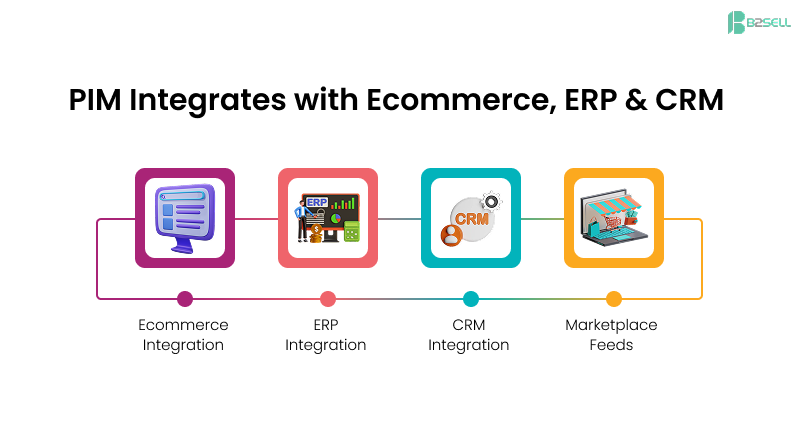
Ecommerce Integration
Push product data directly to Shopify, Magento, BigCommerce, WooCommerce, and other ecommerce platforms. Automate the publishing and updating of listings with real-time triggers.
ERP Integration
Sync pricing, inventory, and product status with ERPs like Epicor Prophet 21, SAP Business One, Sage, and NetSuite. Reduce manual updates and ensure data consistency across departments.
CRM Integration
Align product data with customer data to drive personalized sales and marketing. For example, syncing Salesforce with PIM allows sales reps to offer more accurate recommendations and quotes.
Marketplace Feeds
Ensure compliance and accuracy across Amazon, eBay, Walmart, Google Shopping, and more. PIM handles different data templates and formats required by each marketplace.
Real Key Benefits of Using PIM Software
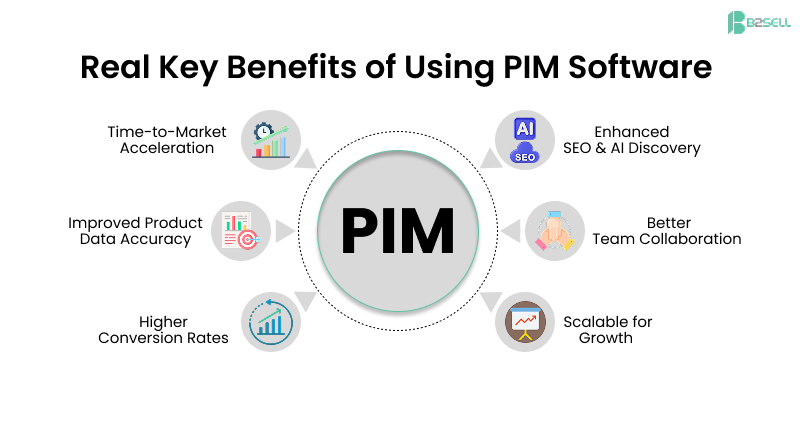
1. Time-to-Market Acceleration
Launch new products in days, not weeks. PIM automates workflows, minimizes dependencies, and enables faster syndication.
2. Improved Product Data Accuracy
Eliminate duplicate, outdated, or incorrect listings. PIM Software provides validation rules and auditing features to maintain accuracy.
3. Higher Conversion Rates
Customers make faster decisions with complete product content. High-quality visuals and specifications improve buyer confidence.
4. Enhanced SEO & AI Discovery
Search engines prioritize rich, structured, and consistent content. PIM Software enables the creation of optimized product metadata for better organic and AI-based visibility.
5. Better Team Collaboration
Break down silos between product, marketing, ecommerce, and IT teams. Everyone works on the same version of the truth.
6. Scalable for Growth
Handle thousands of SKUs without operational bottlenecks. Whether you’re scaling from 100 to 100,000 products, a PIM keeps operations smooth.
Top Use Cases: Real-Life Applications of PIM Software
- A manufacturer syndicates technical specs to distributors and ecommerce stores.
- A retailer updates 5,000+ SKUs across Amazon, Magento, and Walmart in one click.
- A brand launches localized catalogs in 10 languages in days.
- A distributor uses PIM to connect ERP data with Shopify storefronts.
6 Signs You Need a PIM System
- You manage more than 500 products or SKUs.
- Product data lives in multiple spreadsheets and platforms.
- Launching a product on multiple channels takes weeks.
- Inconsistent product info leads to returns or complaints.
- You struggle to maintain SEO-friendly listings.
- Your teams duplicate effort maintaining product data.
If this sounds familiar, a PIM system will drastically improve operations and customer experience.
How B2Sell Simplifies PIM Integration
B2Sell specializes in ecommerce integration, helping manufacturers and distributors implement, manage, and scale PIM systems effortlessly.
Why B2Sell?
- Deep experience with ERP, CRM, and ecommerce ecosystems
- Pre-built connectors for faster time to value
- Custom workflows for your unique product data requirements
- Full-service implementation and support
- White-glove onboarding and dedicated support team
B2Sell works closely with your technical and marketing teams to ensure seamless integration, reduced friction, and faster ROI.
Key Features of B2Sell PIM Integrations
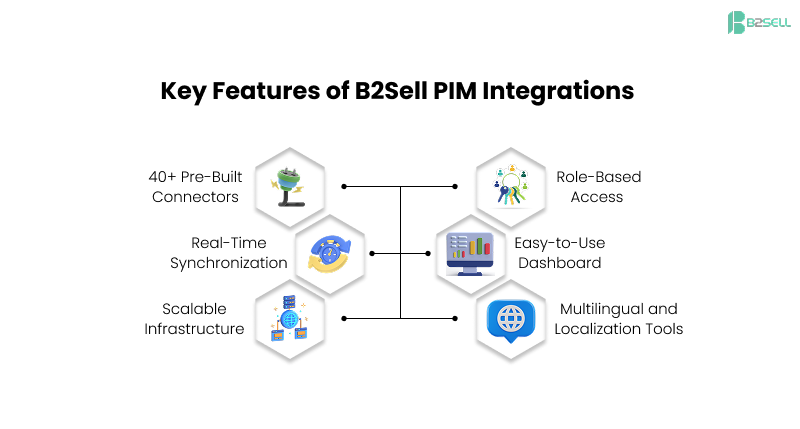
1. 40+ Pre-Built Connectors
Supports Shopify, Magento, BigCommerce, Epicor P21, SAP, Salesforce, NetSuite, and more.
2. Real-Time Synchronization
Ensure product data is always up to date across systems. Sync pricing, descriptions, availability, and digital assets instantly.
3. Scalable Infrastructure
Built to support catalogs with thousands of SKUs and daily changes. Handle seasonal spikes, product expansions, and multi-region rollouts.
4. Role-Based Access
Empower product, marketing, and ecommerce teams to collaborate securely. Set permissions by user roles and department needs.
5. Easy-to-Use Dashboard
Intuitive interface for data mapping, validation, and publishing. No heavy IT involvement required to manage day-to-day tasks.
6. Multilingual and Localization Tools
Perfect for global ecommerce brands and manufacturers. Simplify translations, currency settings, and measurement conversions.
Choosing the Best PIM Software: What to Look For
Selecting the right PIM system starts with understanding your business needs and integration environment. Consider the following when evaluating your options:
- Ease of Use: The platform should be intuitive for both technical and non-technical users.
- Integration Capabilities: Look for pre-built connectors or API flexibility to integrate with your ERP, ecommerce, CRM, and DAM systems.
- Data Quality Tools: Features like validation rules, auto-tagging, and duplication detection improve product content accuracy.
- Multichannel Publishing: The ability to syndicate to multiple channels from a single platform is critical for scaling.
- Workflow Automation: Approval processes, bulk editing, and task assignments help teams move faster.
- Scalability: The platform should support your growing product catalog and expansion plans.
FAQs
Is PIM Software only for ecommerce?
No. PIM Software is valuable across all industries that manage product data—including manufacturing, wholesale, retail, and more.
What is the difference between PIM and MDM?
PIM focuses specifically on product-related data, while MDM (Master Data Management) handles broader enterprise data like customer, vendor, and financial records.
How long does it take to implement a PIM system?
With B2Sell, implementation can be completed in weeks thanks to pre-built connectors and expert guidance.
Can small businesses use PIM Software?
Absolutely. Cloud-based PIM platforms are scalable and budget-friendly for growing businesses.
Can PIM Software help with compliance?
Yes. PIM Software helps ensure regulatory compliance (e.g., nutritional facts, RoHS, SDS) by storing and syndicating product data according to industry standards.
Final Thoughts + Call to Action
In the age of digital commerce, delivering accurate and compelling product information is critical to customer trust, SEO performance, and operational efficiency.
If you're:
- Launching on multiple ecommerce platforms
- Managing a growing product catalog
- Struggling with outdated or inconsistent product data
...then it's time to explore the power of a modern PIM system.
B2Sell PIM is designed to meet the unique needs of manufacturers, distributors, and multi-channel sellers. With deep integration expertise and robust features, B2Sell helps you scale your business without scaling complexity.
👉 Visit www.b2sell.com to learn more or request a personalized PIM demo today.

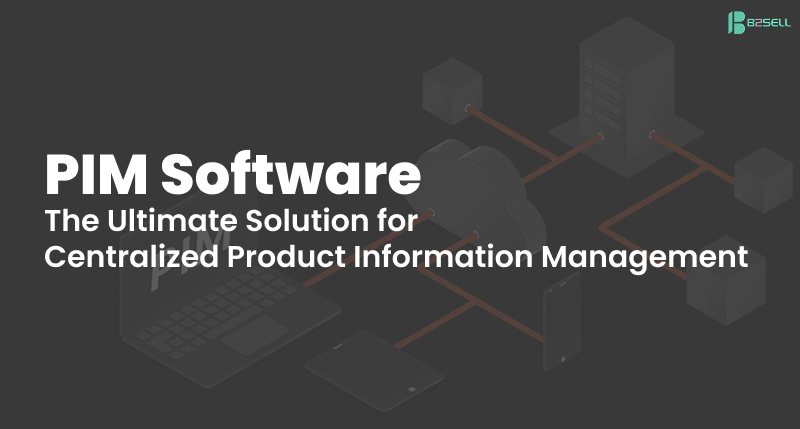

.png)
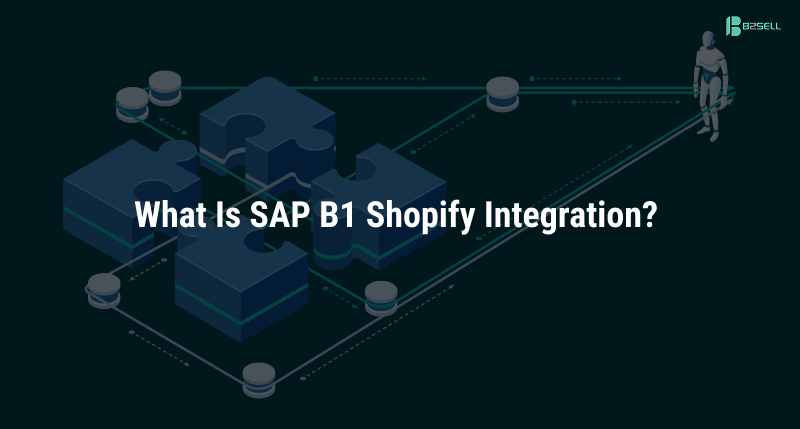


.png)